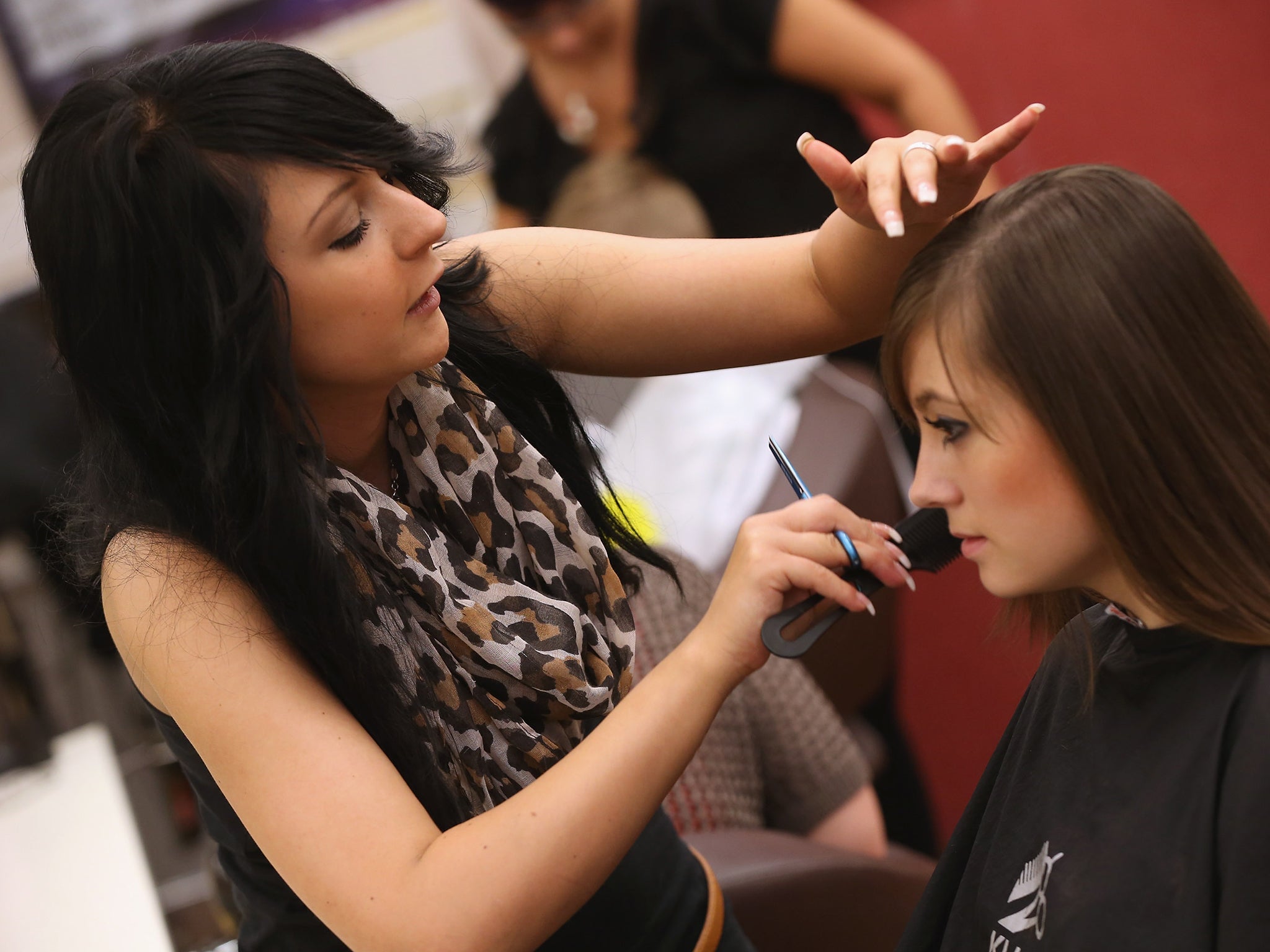All hairdressers must be trained in domestic violence support under new US state law
'It's one of the highest-touch industries, which creates a bond with your clients,' says stylist

Your support helps us to tell the story
From reproductive rights to climate change to Big Tech, The Independent is on the ground when the story is developing. Whether it's investigating the financials of Elon Musk's pro-Trump PAC or producing our latest documentary, 'The A Word', which shines a light on the American women fighting for reproductive rights, we know how important it is to parse out the facts from the messaging.
At such a critical moment in US history, we need reporters on the ground. Your donation allows us to keep sending journalists to speak to both sides of the story.
The Independent is trusted by Americans across the entire political spectrum. And unlike many other quality news outlets, we choose not to lock Americans out of our reporting and analysis with paywalls. We believe quality journalism should be available to everyone, paid for by those who can afford it.
Your support makes all the difference.All hairdressers in the US state of Illinois will receive training in domestic violence support from January.
In an amendment to state legislation regulating the grooming and beauty industries, authorities intend to make use of the close relationship many stylists have with their clients.
The measure is backed by the Professional Beauty Association trade body, which also runs a programme to raise awareness among hairdressers of domestic abuse and to refer victims to support centres.
“When you’re a hairdresser, you're touching people first,” Jamie Feramisco, a hairdresser and domestic abuse survivor from Quincy, a city in the west of Illinois, told the local Herald Whig newspaper.
“I'll start touching your hair before I really even start talking to you. It’s really close. It’s one of the highest-touch industries, which creates a bond with your clients.”
More than in most industries, hair stylists often have a very friendly relationship with their clients.
While creating a close bond, these factors also allow stylists to pick up on evidence of domestic abuse that may not be visible to others.
Campaigners say that for many female victims of domestic violence, a hair salon may be the only safe space they have or are allowed to go to without their abuser.
Furthermore, in what is often a safe, all-female environment, abused women may open up about their experiences.
Stylists will not be required to report abuse, but will be trained to look for warning signs and offer support. They will also learn which crisis groups to direct women to.
“The whole idea is to help hairdressers deal with disclosures,” said JJ Magliocco, a worker at domestic violence charity Quanada, to the Herald Whig.
“There is a right way and a wrong way to talk to someone. It can make or break the way a person handles their assault.
“We are teaching them that they can make a difference. They don’t have to keep their mouth shut.”
If you have been affected by domestic violence in the UK, you can contact the National Domestic Violence Helpline free on 0808 2000 247
Join our commenting forum
Join thought-provoking conversations, follow other Independent readers and see their replies
Comments